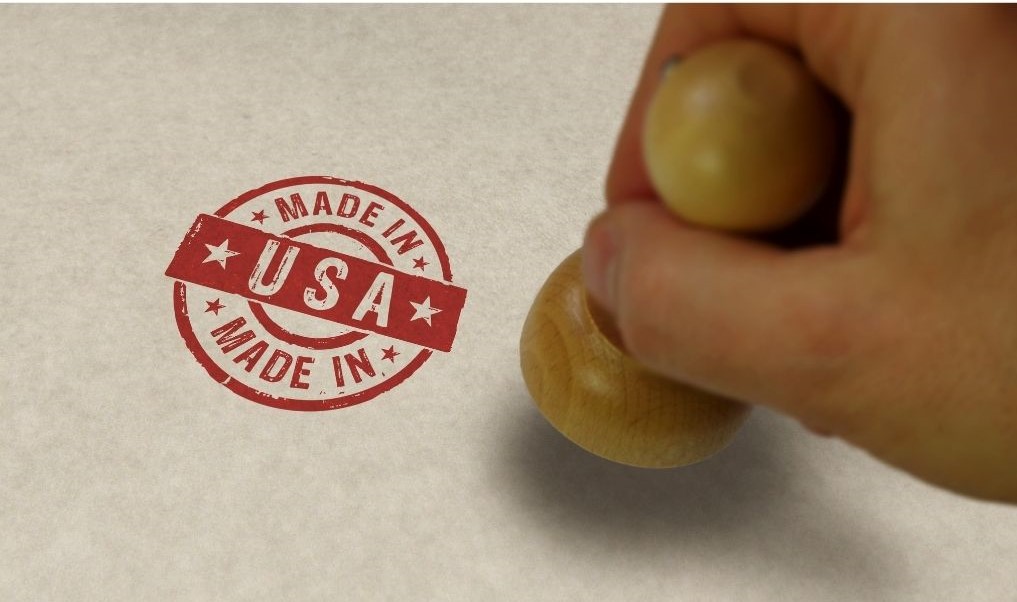After years of casting aside rulemaking in favor of letting the market do its work, the Federal Trade Commission said that it will now penalize companies as much as $43,280 if they label their goods as Made in the USA, when they are not.
The final rule, called the Made in the USA rule, was made official on July 14 and goes into effect on August 13. When a government agency wants to do a new regulation, they start with a Notice of Proposed Rulemaking, which is when the agency tells the public that they are thinking of doing a particular regulation and are open to comments. This process generally takes six months to a year, depending on the complexity of the regulation. A final rule means the process is complete. The decision has been made to penalize misleading Made in the USA labeling.
CPA filed a comment to the FTC on September 14, 2020 in support of the rule.
The final rule gives the FTC more enforcement powers and enables the agency to seek civil penalties of up to $43,280 per violation.
There is no fixed percentage of content from the U.S. for Made in the USA labeling. It depends on the products. Not all companies will even label their products because either the majority of it is sourced from abroad, or they are not sure if they can call themselves domestic-made due to percentage standards that differ across state lines.
The FTC still allows so-called “qualified claims”, where the manufacturer says something like “Made in the USA with imported materials”. What’s clear in the FTC policy is that this cannot be something like a paint job or a screwdriver assembly.
As part of the July 14th rule, the FTC said in their section on guidance that the Department of Agriculture will begin a review of the USDA’s Made in USA labeling standards for beef. This comes at the behest of the farmers, ranchers, and agriculture industry workers. However, Secretary Tom Vilsack is very much pro World Trade Organization and CPA believes he will hold fast to the rule that does not permit the U.S. to differentiate locally raised beef from foreign sources.
The FTC’s move is another part of the new Biden administration’s stated goal to promote domestic manufacturing.
On Thursday, Biden’s Made in America policy director Celeste Drake said that “regulations under the Buy American Act will help ensure federal purchasing power is used to invest in American industry and all of America’s workers.”
CPA will keep an eye out for action on Biden’s Executive Orders on this issue, looking for “American industry” to mean “American manufacturing” and not a blanket term used to describe construction workers, and final assembly workers of China-made components.
These new rules by the FTC and the White House are designed with the hopes that companies that want to promote the Made in the USA label will be more mindful of their supply chains, and reshore as much of it as possible to be a majority domestically-sourced pair of jeans, or Apple Macbook.
For the White House’s EO, the Buy American order is designed to increase the domestic content threshold for a product to be considered “American made” both immediately and over the long term. Currently, for federal procurement purposes, a product qualifies as “made in America” if the values of its domestic components exceed 55%. The Administration’s proposed EO would increase this requirement to 60% immediately and then to 75% over the next few years. This staged increase “provides a clear signal to industry that investments in America will provide additional opportunities in federal procurement,” Drake said.
Lastly, Biden’s Buy American rules are designed to address the shortages in critical industries, such as semiconductor and pharmaceutical supply chains. The Biden administration is saying that government procurement can pay “a little more” for domestically produced items that are considered critical to national security, and will create a new reporting requirement to increase information on the domestic supply chains for those goods.
As always, the main issue with the Buy American Act and the Executive Orders from both the Trump and Biden administrations to wield it fully to the benefit of local manufacturing and manufacturing labor is that the U.S. is tied to the World Trade Organization. The Government Procurement Agreement of the WTO means some 40 nations, including Hong Kong, which is now fully just another Chinese city, can bid for U.S. government contracts and compete directly with domestic firms. Biden and his team either have to devise a way around the WTO GPA or face the wrath of “our allies” who will use it as a roadblock.
It is not enough to tout domestic manufacturing in EOs, press conferences, and FTC rulemaking. Washington will have to decide if the WTO is in charge or the President in the White House.













